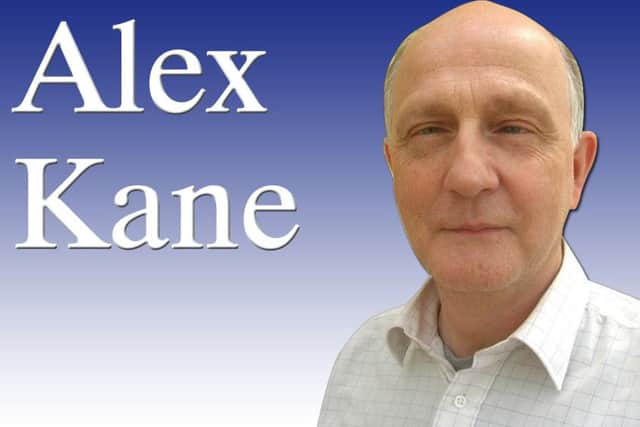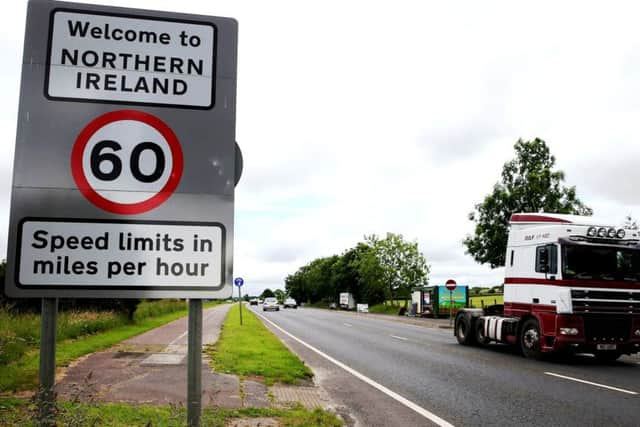Unionists can no longer ignore border poll debate
and live on Freeview channel 276
Down the years a number of unionist leaders – Terence O’Neill, Brian Faulkner, David Trimble, Peter Robinson, Mike Nesbitt (along with UUP/DUP MLAs and MPs in private conversations with me) – have voiced their regrets about unionism’s failure to reach out to Catholics/small-n nationalists with a more attractive message.
The debate – Irish unity versus the Union – was never going to go away. There was always going to be a substantial section of the population here who wanted a reunited Ireland, irrespective of the socio/economic circumstances. But even as the electoral gap narrowed between the Protestant/Catholic blocs there was always a belief within the unionist parties (although never tested in a referendum) that there were enough voters from a Catholic background prepared to vote for the Union rather than the ‘potential risks and instability’ of Irish unity. It’s possible that we may see that belief tested in a border poll in the next few years – particularly if there isn’t a soft-landing resolution to the north-south border problem in the final Brexit deal.
Advertisement
Hide AdAdvertisement
Hide AdSome unionists believe that fellow unionists shouldn’t ‘facilitate’ the debate; while others argue that the issue should be ignored altogether because, ‘Irish unity is not a runner, full stop’. Maybe they should look at the figures. Unionists are in a minority on Belfast City Council (24-36). They represent a minority of the Belfast Assembly seats (6-14). They are a minority in the Assembly (40-50). In the last two elections – the 2017 Assembly and General elections – unionist/pro-Union candidates (by which I mean candidates who used the terms in their election literature) – were also a minority (365,818-437,497 and 390,773-419,848), although they won 11 of the 18 parliamentary seats. In the 2014 election for the 11 new super-councils unionists have a slim majority (240-222).


The latest figures from Dr Paul Nolan – a specialist in the field – suggests that Catholics will represent a majority by 2021. I don’t buy into the view that all Catholics oppose the Union or would, in a border poll, vote against it; but I do buy into the view that unionists should take nothing for granted anymore.
It’s a well-established fact that some people will not vote if they don’t think there is much chance of them being on the winning side. But hold out the prospect of victory and they may be tempted to the polls. So yes, there may be some small-n nationalists who would be inclined to vote for unity in a border poll; particularly if there was evidence that the major Irish parties were also interested in the prospect.
And, as I’ve mentioned in previous columns, Brexit has changed the dynamics of the debate (although the debate was always coming anyway and would have reached a critical level at some point irrespective of Brexit). People who were reasonably content to remain within a UK within the EU (believing that their sense of identity was protected) may be less content if they; a) are fundamentally opposed to leaving the EU and b) believe that their personal sense of identity will be diluted or maybe even removed in a UK outside the EU.
Advertisement
Hide AdAdvertisement
Hide AdAs a unionist I am very well aware of the personal loss of identity which would accompany any vote to remove NI from the UK; so I can understand the concerns of those who think the same thing would happen to them when the UK leaves the EU.


That’s why I’ve argued for so long – going back to the autumn of Stormont in 1972, when I was just 17 – that the long-term future of the Union would always depend on making sure that people felt at home in Northern Ireland. In other words, as long as they were persuadable it didn’t matter if they were Catholic, Protestant, gay, atheist, pro-abortion, white, black etc, etc. It didn’t even matter if they voted for a unionist party at every election, or even just stayed at home. All that mattered was that if it ever came to the existential question of maintaining the Union between NI and GB then they would be willing to support the Union.
If there is a border poll it will be that existential question which will be at the heart of it. If unionists lose the argument then they lose the Union, their unionism and their identity. I cannot think of any circumstance in which my identity could be protected, let alone promoted in a united Ireland. I would cease to be British. I would cease to be a citizen of the UK. The country in which I was born would cease to exist. No one – and I really do mean no one – knows, other than in geographical shape, what a united Ireland would look like.
My advice to fellow unionists: do not ignore this debate, do not kid yourself the issue is going away. Do not delude yourself that it will somehow be ‘all right on the night’. The pro-Union lobby – which is broad and diverse and includes people who aren’t Protestant or Catholic – can win a border poll. But we need to ensure as big a victory as possible. We need to ensure that everyone knows exactly what is at stake.
And even if there isn’t a border poll – nothing is set in stone – it would do no harm at all if unionists today focused on issues raised by Carson, O’Neill, Faulkner et al decades ago.